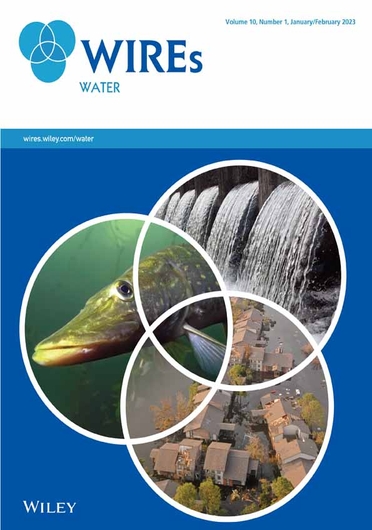美国水文学家《清洁水法》管辖范围的演变概述
IF 5.8
1区 地球科学
Q1 ENVIRONMENTAL SCIENCES
引用次数: 3
摘要
《清洁水法》(CWA)是保护美国河流、湖泊和湿地的物理、化学和生物完整性的主要联邦机制。自1948年首次通过以来,《华盛顿邮报》已经有了很大的发展,包括通过一系列立法行动、法院裁决和机构规则明确扩大和缩小管辖范围。在这里,我们提供了一个实用的概要,介绍了CWA的演变,详细介绍了主要的更新或修订及其情况。此外,我们根据同一时期各机构使用的语言和实施情况,确定了河流、溪流、湖泊和湿地的法律管辖范围。虽然规则制定过程通常使用的语言对许多水文学家来说是抽象的,但理解实际影响、量化监管(不确定性)以及评估随时间变化的幅度对于理解环境法规制定、诉讼和执行的影响至关重要。因此,我们将执行规范和定义转化为沃巴什河流域(美国伊利诺伊州、印第安纳州和俄亥俄州)《清洁水法》范围的定量估计,以展示监管语言变化的空间后果。本文章由计算机程序翻译,如有差异,请以英文原文为准。
An overview of the evolving jurisdictional scope of the U.S. Clean Water Act for hydrologists
The Clean Water Act (CWA) is the primary federal mechanism by which the physical, chemical, and biological integrity of streams, lakes, and wetlands are protected in the United States. The CWA has evolved considerably since its initial passage in 1948, including explicit expansions and contractions of jurisdictional scope through a series of legislative actions, court decisions, and agency rules. Here, we provide a practical summary of the CWA's evolution, detailing the major updates or revisions and their circumstances. Additionally, we identify the jurisdictional scope of the law for rivers and streams, lakes, and wetlands based on the language used and implementation by the agencies during the same time period. While the rulemaking process commonly uses language that will be abstract to many hydrologists, understanding the on‐the‐ground implications, quantifying regulatory (un)certainties, and assessing the magnitude of changes through time is important to understanding the implications of environmental regulation development, litigation, and enforcement. Thus, we translate the enforcement norms and definitions into quantitative estimates for Clean Water Act scope in the Wabash River Basin (Illinois, Indiana, and Ohio, USA) as a demonstration of the spatial consequences of changing regulatory language.
求助全文
通过发布文献求助,成功后即可免费获取论文全文。
去求助
来源期刊

Wiley Interdisciplinary Reviews: Water
Environmental Science-Ecology
CiteScore
16.60
自引率
3.70%
发文量
56
期刊介绍:
The WIREs series is truly unique, blending the best aspects of encyclopedic reference works and review journals into a dynamic online format. These remarkable resources foster a research culture that transcends disciplinary boundaries, all while upholding the utmost scientific and presentation excellence. However, they go beyond traditional publications and are, in essence, ever-evolving databases of the latest cutting-edge reviews.
 求助内容:
求助内容: 应助结果提醒方式:
应助结果提醒方式:


